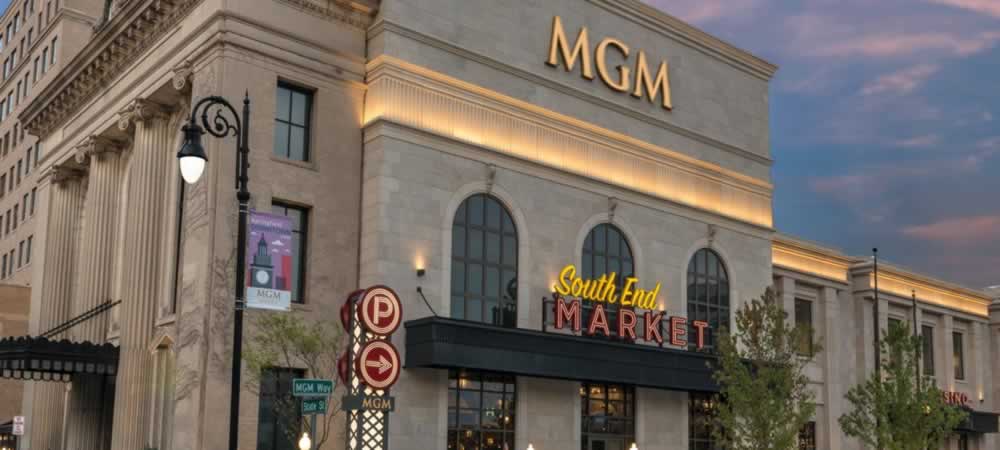- Three major commercial MA casinos have submitted a joint sports betting proposal to the state.
- The proposal would give casinos and DFS operators exclusivity to offer sports betting products.
- Sports betting would be taxed at a “single-digit” rate.
SPRINGFIELD, Mass. – Massachusetts gaming operators submitted their legal sports betting proposals to state lawmakers Monday. On Tuesday and Wednesday, the statehouse will be debating the issue.
In a joint letter to the state, the casinos have outlined what they’d like to see in any sports betting bill the state passes. For the MGM Springfield, Encore Boston Harbor, and the Plainridge Park Casino, two things are of chief importance.
The first is that the casinos themselves get exclusive rights to offer sports betting. It is unclear whether this would apply to future casino sites opened by the state’s two federally recognized Native American tribes.
The second is that sports betting itself be taxed at a comparatively low “single-digit” rate.
Massachusetts Governor Charlie Baker (R) released a bill proposal earlier this year that is mostly in line with what the casinos are seeking.
In Baker’s proposal, in-person betting would be limited to the aforesaid casino venues. Further, only betting would be legalized and operated by companies like FanDuel and DraftKings.
While exclusivity and low tax rates are not unique requests from gaming operators in states considering legalization, one aspect of the casinos’ letter is particularly notable.
“Land-based sports betting should be reserved for the commonwealth’s duly licensed casino operators and mobile sports wagering should be reserved for licensed casino operators and a limited number of daily fantasy operators with proven sports wagering experience.”
Massachusetts casino operators have effectively declared that they intend to partner exclusively with FanDuel and DraftKings. These two brands are the only DFS operators that also manage sportsbooks in the US.
Ostensibly, this would cut out established companies from managing Massachusetts sportsbooks. Bookmakers like William Hill, PointsBet, Kambi, Betfair, and other international brands could be left in the lurch.
For FanDuel and DraftKings, this can only be described as a major marketing coup.
Even if Massachusetts law doesn’t ultimately limit sports wagering to these brands, it speaks volumes about their mindshare in the new US betting landscape.
Ultimately, it seems a foregone conclusion that sports betting will be legalized in Massachusetts sooner rather than later. H2 Gambling Capital, a research firm, has informed Massachusetts lawmakers that there is nearly $700 million in “gray market” handle in the state annually.
What About The Sports Bars?
Of course, the plan has detractors, too. Fair Play Massachusetts is a lobbying group that represents a number of Massachusetts sports bars. These bar operators want a piece of the sports betting pie.
Massachusetts bars would be using the state lottery as the backbone of such an operation. Joe Sullivan of Nathan Bill’s Bar & Restaurant, explains the lobby’s logic.
“If it is going to be legalized why not allow us to take wagers? The technology is present with the infrastructure the Lottery has now. Giving our adult patrons a safe and legal place to maybe throw down a little on a game; while also enjoying the game at our establishment will help us in a big way!”
While expanding Massachusetts gaming to bars and restaurants across the state is likely a nonstarter, the larger casino proposals seem in line with what the state wants.
All About The Benjamins
The only real question is the tax rate. Massachusetts casino operators claim that a single-digit tax rate is imperative to stave off competition from gray and black-market sportsbooks.
Michael Mathis, president of the MGM Springfield, says that a low tax rate is key to steering action to legal books. Though a single-digit rate is ideal, a low double-digit rate would not rock the boat too much.
“If we’re at 10%, that’s close enough to single digits I think that would be acceptable.”
Though that figure jibes with the rates applied to sports betting in places like Nevada (6.75 percent) and West Virginia (10 percent), it pales in comparison to Pennsylvania’s rate. In Pennsylvania, sports wagering is taxed at 36 percent of gross adjusted receipts.
Because of that, Pennsylvania is on track to generate more sports betting tax revenue than Nevada, which is a far larger market. Nevada manages many times the volume of sports wagering that Pennsylvania even has potential for.
If Massachusetts takes the casinos’ low-tax-rate bait, they could be leaving substantial monies on the table.
On the other hand, if the state doesn’t legalize sports betting before the start of the Patriots title defense this September, they could lose out on even more.
Advertising Disclosure
In order to provide you with the best independent sports betting news and content LegalSportsBetting.com may receive a commission from partners when you make a purchase through a link on our site.
News tags: Massachusetts | taxes

Andy has been writing professionally for nearly two decades, with the last three years being dedicated to his primary passions: sports wagering news and gambling industry analyses. A walk-on punter, Andy has a particular interest in professional football, baseball, and horse racing betting. Come early May, you can always catch Andy – clad in all white, mint julep in hand – on Millionaires Row at Churchill Downs. In his dreams.


 Bitcoin Sports Betting Sites
Bitcoin Sports Betting Sites Best Online Sports Betting
Best Online Sports Betting Famous Sports Bettors
Famous Sports Bettors States With Legal Sports Betting
States With Legal Sports Betting Sports Betting Events
Sports Betting Events




